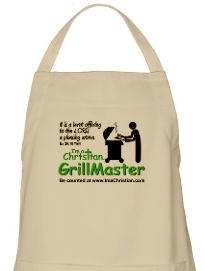Before I entered that zone of Sisyphean torment reserved for writers of novels-in-progress, I used to say I was a poet because I have a short attention span. I can see my way around all sides of a poem at once: it’s like carving a statue, rather than building a house. It takes me about an hour to write, and once it’s done, it’s pretty clear to me whether it sucks or not. If it does, I generally abandon it. When the tone is off, it’s off. None of that “parts of the omelet are excellent” wishful thinking.
If the poem smells OK, I don’t do much to it after that. I’ll tinker with a line or two that might have concerned me the first time around, but I don’t approach my drafts with the presumption that more input will always make them better. By contrast, it’s common for creative writing workshops to silence the author while the other students critique her piece, an approach that troubles me because of the potential for peer pressure to stunt the development of her own internal smell-o-meter.
Even outside a group setting, the self who writes the first draft is not the same person who revises it. You are, in a sense, your own peer pressure. You’ve got to be careful that the anticipation of judging-self’s criticism doesn’t stifle creative-self, because creative-self is the expert and needs to be trusted as such.
A Facebook link posted by the poet Rus Bowden led me to this satisfying screed by Art Durkee , a writer, musician, and visual artist, who goes off on his fellow poet Mary Karr’s advice to students that “every poem probably has sixty drafts behind it”. Durkee thinks, as do I, that bragging about how many reps you did at the revision gym says more about your ego than the quality of the poem. Some choice quotes:
…Rewrite after rewrite after rewrite after rewrite is a completely alien way of working, for me. I literally cannot imagine doing sixty drafts of a poem. I cannot imagine doing endless rewrites without the process itself literally killing every good thing in the poem, including the impulse that originally caused me to want to write it. The spontaneity and freshness and surprise and life will all be killed, each phrase will become so overly-familiar that all the life will be sucked out of it merely by repetition. You can’t bring a poem back to life, after killing it with rewrites: there are no zombie-poems (although one can make a case for there being some living-dead poets, in certain instances). I’d rather shoot the poem and put it out of its misery than subject it to such pointless and endlessly painful surgery.
If I can’t get it in four or five drafts, sixty drafts won’t make any difference: one reaches a point of diminishing returns. Far better to start over, because—in my case at least—endless rewrites will not magically repair what a few drafts cannot. It’s magical thinking—or worse. The definition of insanity is to keep repeating the same behavior again and again, each time hoping for a different outcome than that which the previous hundred repetitions provided. In the case of obsessive rewriting, I’d want to see some evidence that the last twenty drafts made any noticeable improvements to the poem. I remain skeptical until presented with such….
…Poets constantly suffer from an insecurity, inherited perhaps from Romantic stereotypes about tubercular Writers wasting away in starving garrets, that other members of the literary clan won’t respect them if they don’t appear to be working hard enough at their “craft and sullen art.” Certainly every poet wants to appear to the non-poet as hard-working, as if they must work hard, to achieve what they’ve achieved. Poetry is, after all, specialized language, intensified and heightened speech, with more meaning packed into a few words, compared to every other literary artform. Yet poetry is a verbal artform, with no physical component to it, so one might well understand how a poet might feel like a slacker when standing next to a construction worker: although both are building things, only one makes tangible things that one might actually trip over. I myself would argue that poetry at its best is a tangible thing one can trip over, and have one’s life changed thereby—but it’s easy to see how some poets might be insecure about their art’s lack of apparently physical results, especially in a consumer economy wherein the dominant measure of intrinsic value is monetary and physical utility….
…I can conceive of no worse hell than being forced to follow a creative process so alien to one’s own, natural process.
The point here is that there are many different ways of working, even within similar creative processes. We may have fundamentally different working methods. I’m fine with that. I’m not okay when the disbelieving try to impose their values, or their working methods, on others.
Read the whole post here .
